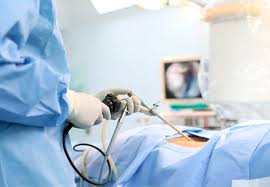The donor’s family reported that she had no known history of travel and didn’t have any recent COVID-19 symptoms. It was unclear whether the organ donor had exposure to a person infected with the virus.
A day after the transplant, the recipient’s heart wasn’t pumping as efficiently as expected, and two days after the transplant, she developed a fever, low blood pressure and respiratory distress.
Doctors collected samples of fluid from her lungs using what’s known as bronchoalveolar lavage and tested that fluid for SARS-CoV-2. The results were positive. The same type of fluid from the organ donor was then also tested for coronavirus, and it also yielded a positive result.
Soon after, a thoracic surgeon who performed the transplant surgery also tested positive for the virus.
The woman who had the double lung transplant was treated for COVID-19 in the hospital and was given the antiviral medicine Remdesivir and convalescent plasma, as well as steroids, but her condition worsened.
She died about two months after her transplant surgery.
The incident happened at the University of Michigan Medical Schools last October, and experts say it could be the first case in which a person would be contracting COVID-19 from a donor.
The report, published online by American Society of Transplant Surgeons, states that the donor had no clinical history or findings suggestive of infection with SARS-CoV-2 and had even tested negative by reverse transcriptase polymerase chain reaction on a nasopharyngeal swab obtained within 48 hours of procurement.
The report however noted that lower respiratory tract testing was not performed.
“The recipient developed fever, hypotension and pulmonary infiltrates on post-transplant day 3, and RT-PCR testing for SARS-CoV-2 on a nasopharyngeal swab specimen was non-reactive, but positive on bronchoalveolar lavage [BAL] fluid. Bronchoalveolar lavage is a diagnostic method of the lower respiratory system in which a bronchoscope is passed through the mouth or nose into an appropriate airway in the lungs, with a measured amount of fluid introduced and then collected for examination.
One thoracic surgeon present during the transplantation procedure developed COVID-19. Sequence analysis of isolates from donor bronchoalveolar lavage fluid (obtained at procurement), the recipient, and the infected thoracic surgeon proved donor origin of recipient and healthcare worker infection.
According to the Chief Clinical Officer of Gift of Life Michigan, Bruce Nicely, “This is the first, and actually the only, documented transmission of COVID-19 to a recipient from donated organs.”
The woman who underwent the transplant, and the donor were both tested with a rapid polymerase chain reaction test before the surgery, and they were negative for COVID-19.
However, whole-genome sequencing of the two women and a surgeon who tested positive for COVID-19 days later, indicated that the disease likely originated from the organ donor and had spread to the recipient and the surgeon during transplantation.
Director of the Transplant Infectious Disease Service at the University of Michigan, Dr. Daniel Kaul, said, “By definition, that donor was asymptomatic;” noting, “But it’s important to recognise that the donor was tested with a standard PCR and was negative, and that test was repeated on that same specimen and was negative again.
Kaul added that, in most asymptomatic carriers, the vast majority — greater than 90 per cent — would test positive.
According to the report, the case poses a dilemma for transplant doctors because people who need organ transplants are at high risk of dying without them, but there’s no way to definitively prove an organ donor might not be carrying a disease like COVID-19.
The study warned that transplant centres and organ procurement organisations should consider it necessary to perform SARS-CoV-2 testing of lower respiratory tract specimens from potential lung donors, and consider enhanced personal protective equipment for healthcare workers involved in lung procurement and transplantation.
source: punch

 A woman died of COVID-19-related causes after undergoing a double lung transplant with organ suspected to have been infected with coronavirus. The woman, who underwent the double lung transplant, had a chronic obstructive pulmonary disease and had tested negative for the coronavirus 12 hours before surgery.
A woman died of COVID-19-related causes after undergoing a double lung transplant with organ suspected to have been infected with coronavirus. The woman, who underwent the double lung transplant, had a chronic obstructive pulmonary disease and had tested negative for the coronavirus 12 hours before surgery.




